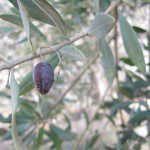The Book of Mormon has a variable pace. Occasionally, we skip through decades or even hundreds of years on a single page. Other times, like today, Mormon’s editing moves us into super slow motion, relatively speaking. What is probably only a few hours in real time for Alma to speak to his sons occupies six full chapters, which we slow down further by breaking it up into two weeks of study. This will be significant for understanding Alma 43 onwards, and I’ll comment further there.
Rough Outline
Alma 36-37 Alma addresses Helaman
- 36 examples of deliverance from captivity.
- 36:4-24 Alma’s personal deliverance.
- 36: 28 deliverance of Israelites from Egypt
- 36:29 deliverance of Lehi and family from Jerusalem and captivity
- 37 instructions regarding relics.
Alma 38 Alma addresses Shiblon
Alma 39(-42) Alma addresses Corianton
Alm 36:2 Remember captivity and how you were delivered. Was Helaman there during this captivity?
Alm 36:3 Supported “in,” not always delivered “from.” Bad things happen.
“Think not when you gather to Zion, Your troubles and trials are through, That nothing but comfort and pleasure Are waiting in Zion for you: No, no, `tis designed as a furnace, All substance all textures to try, To burn all the wood, hay, and stubble The gold from the dross purify.” Hymn written by Eliza Snow, old Hymnbook #21.
Alma 36:4-24 Alma recounts his conversion experience, his own personal deliverance from captivity.
Alm 36:12 How long did Alma undergo “eternal torment”? D&C 19:11ff
Alm 36:15 What is that torment? Something like Eze 36:31? “Then you will remember your evil ways and your deeds that were not good; and you will loathe yourselves in your own sight, for your iniquities and your abominations.”
Alm 36:19 Alma doesn’t forget his sins, but the thought of having committed them no longer “harrowed up” his soul. Why? See. v. 27 and 2 Nephi 4:15.
A “harrow” is an agricultural instrument used for leveling soil and breaking up clods, so the verbal usage here is obviously metaphorical. In 1828, the verb meant
1. To break or tear with a harrow- Will he harrow the valleys after thee? Job 39:10
2. To tear; to lacerate; to torment.- I could a tale unfold, whose lightest word Would harrow up thy soul–
3. To pillage; to strip; to lay waste by violence. [Not used.]
4. To disturb; to agitate.
Alm 36:22 Alma gets a glimpse of the light at the end of the tunnel.
Alm 36:23 Alma born again. C.f. Mos 5:7 although with Alma we know of no covenant.
Alm 36:28 “from time to time” in the KJV means “regularly, at fixed times” e.g. Eze 4:10-11.
Alm 37:11 Does a prophet know everything, even in carrying out his prophetic duties? Nope.
“With all their inspiration and greatness, prophets are yet mortal men with imperfections common to mankind in general. They have their opinions and prejudices and are left to work out their problems without inspiration in many instances.” -Elder McConkie, Mormon Doctrine, “Prophets”
Alm 37:23 Gazelem. Is Gazelem the servant or the stone? See the JST on John 1:42. In three different revelations, spanning a period of two years (1832-34), Joseph Smith was called “Gazelam” by the Lord (D&C 78:9; 82:11; 104:26, 43, 45, 46; pre-1981 edition). His name was disguised in order to prevent his enemies from discovering what plans the Lord had in mind at that particular time (HC 1:255).
Alm 37:29 Tells Helaman to a) hide the details of the evil stuff and b)the didactic purpose to teach. Cf. My old post on Brigham Young and “studying evil.”
Alm 37:38 Liahona is named and given to Helaman. (This is the only place the name “Liahona” appears in the Book of Mormon, which makes it a great trivia question.) Alma comments on it. On “compass” see 2 Kings 3:9 “fetch a compass” In Webster’s 1828 dictionary, one must go down to the fifth definition to find a magnetic compass. Otherwise, it just has to do with being round. Cf. the KJV language of “candle” and “unicorn” etc.
Alm 39:2-3 Corianton had boasted of his wisdom and strength, yet he wanders off after the harlot. Neither strong nor wise.
Alma 39:5 While this verse has been used to emphasize the seriousness of sexual sin, it’s probably been misunderstood. I think we can still emphasize the seriousness of sexual sin without suggesting, for example, that teenagers seething with and succumbing to hormones are just behind murderers. See Mike Ash’s paper important here.
One evidence for [his] claim is that if Alma’s primary concern with Corianton was sexual transgressions, one would think that most of the remainder of his discourse would focus on promiscuity. Yet immediately after noting the abominable nature of Corianton’s actions and the fact that his actions were second only to murder, which was second only to denying the Holy Ghost, Alma launches into a description of the unpardonable sin—to knowingly deny the Holy Ghost. Following this explication, Alma continues by explaining that “whosoever murdereth against the light and knowledge of God, it is not easy for him to obtain forgiveness” (Alma 39:6).
An excellent personal approach to teenagers and sexuality is here.
Alm 39:8-9 cf. 1Co 6:9-11.
1 Corinthians 6:9 Do you not know that wrongdoers will not inherit the kingdom of God? Do not be deceived! Fornicators, idolaters, adulterers, male prostitutes, sodomites, 10 thieves, the greedy, drunkards, revilers, robbers– none of these will inherit the kingdom of God. 11 And this is what some of you used to be. [Harsh, right?] But you were washed, you were sanctified, you were justified in the name of the Lord Jesus Christ and in the Spirit of our God.
We shouldn’t teach sin unless we’re also teaching repentance and atonement. Said Elder Ballard,
“Fourth, eliminate guilt. I hope it goes without saying that guilt is not a proper motivational technique for leaders and teachers of the gospel of Jesus Christ. We must always motivate through love and sincere appreciation, not by creating guilt.”
Alm 39:9 Prov 6:27-29. Cf. Proverbs 7:4-26. (And note, the Bible has no male equivalent. From their cultural view and Bible written by men, it did not occur to them that women might equally be tempted by men, and that men might similarly play the role of evil seductor.)
Alm 39:11 Harlots plural? Ritualized harlotry? If so, that’s certainly some apostasy on Corianton’s part, not just immorality. That also may explain the plural “these things” in v. 5.
As always, you can help me pay my tuition here, or you can support my work through making your regular Amazon purchases through this Amazon link. You can also get updates by email whenever a post goes up (subscription box on the right). If you friend me on Facebook, please drop me a note telling me you’re a reader. I tend not to accept friend requests from people I’m not acquainted with.











